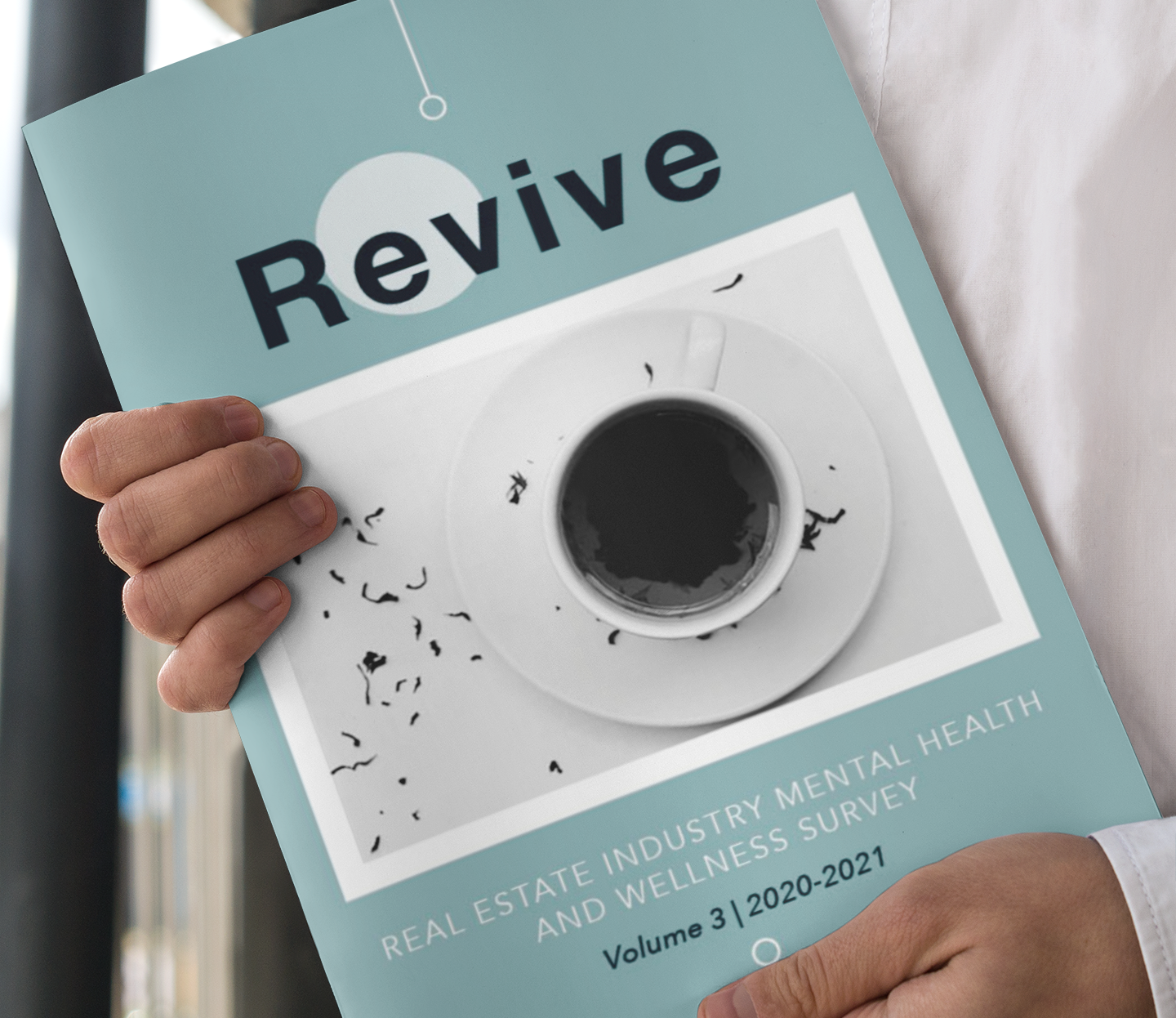
A national survey of more than 900 Australian real estate agents has revealed the impact of Covid-19 and lockdowns upon the mental wellness of real estate agents and property managers, while also flagging ongoing issues that have long been a hallmark of the industry.
Results from the Real Estate Industry Mental Health and Wellness Survey 2020/21, showed that more than 42% of agents were not satisfied with their level of health and fitness – a sharp increase from the 33.33% figure two years earlier in 2018/2019. Much of this is likely to be due to lockdowns.
The Revive Report, jointly released today by The Revive Project and The RiSE Initiative, drew back the curtain on subjects such as Positive Emotions, Engagement, Relationships, Meaning, Accomplishment and Health.
The results were compared with previous surveys conducted in 2018/19 and 2016/17.
Latest findings included that 43% of agents often felt stressed about their workload; work-life balance was a struggle for most (42% said this was “sometimes” managed while a further 26% said it was “rarely” managed) and; a whopping 63% of agents said they struggled to find time for personal interests outside of work (“sometimes” for 45% and “not at all” for 18%).
The data shows that Covid gave agents and PMs time to reflect and reconnect with family while also increasing anxiety and stress.
When questioned whether work impacted on personal relationships, 29.3% responded “quite often”, a result which continued to trend down, from 30.5% in 2018/19 and 34.6% in 2016/2017.
However, a further 44.6% said it had “somewhat” impacted, showing a fluctuation from 38.8% in 2018/2019 and 42.5% in 2016/2017.
But, this third report into the industry’s mental health and wellness did also provide some good news.
Real Estate Coach and The Revive Project founder Jet Xavier said the results revealed that the industry had reached a turning point in attitudes towards health and wellness.
“The Revive Research started in 2016 as a vehicle to highlight the growing concerns about the wellness, wellbeing and mental health of those in the Australian real estate industry,” he said.
“Since its inception, we have seen a growing commitment from key industry stakeholders to ensure that the future is improving as awareness grows and people take steps to manage their mental wellness.
“We’ve seen the success of the Rise Conference, plus the issue of mental wellbeing now on the agenda of conferences across the country, while the Real Care app is being downloaded by a growing number of agents and property managers.
“What started as a quick look under the veneer of real estate life has turned into a world-class approach to minimising mental health issues in this industry.”
The Revive Project head of research and RiSE Initiative director Sarah Bell said publishing the survey results was a simple mission to educate and inspire action within the real estate industry.
“Thinking back to the conversations that first inspired this project, we were seeking to add substance to the mental health and wellness conversation which, at the time, was dominated by superficial ‘quick wins’ such as free fruit in the office, or an investment in employee break rooms,” she said.
Since then the industry has collaborated to create The RiSE Initiative, an Australian and New Zealand mental health and wellness charity for real estate agents, property managers and their families.
The organisation provides mental health resources through the free Real Care App – allowing information to be accessed easily and discreetly from a mobile phone at any time.
The multiple award-winning app recognises the specific stresses and issues faced by real estate agents and property managers, offering tools to manage anxiety and physical health. There is also access to a free Employee Assistance Program offering counselling support, made possible through the generous support of Domain.
Ms Bell said she was thrilled to see that mental health and wellness conversations within the real estate industry had now evolved to centre on human sustainability and consider both mental and emotional wellbeing.
“This third cycle of our research emerges among many confronting statistics and lessons about the state of mental health and wellness in Australia, which we learned during the peak Covid period,” she said.
“But, while much work has been done to destigmatise mental health and wellness challenges, public health resources are strained to meet the needs of those seeking help.
“Possibly the most confronting statistic is that the waiting time for a new patient in Australia to access a psychologist is between four and six months.”
Mr Xavier said he felt privileged to have been at the start of “something that is making a difference for those in this industry”.
“We still have many challenges,” he said. “However, five years down the track, a big difference is now being made. The people whose wellness, wellbeing and mental health has been impacted are being supported and understood more than ever.”
Mr Xavier said he was now handing over the Revive Research to The RiSE Initiative, which would “continue the research for years to come as part of their enormous commitment to the industry”.
The Real Care App is available for free download on iOs and Android.
